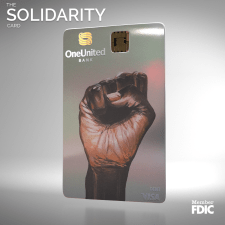Business: Legally Speaking-To Pay or Not to Pay Minimum Wage
Alicia Marie Phidd,Esq.
South Florida – The business of running a business is just that…business. Developing the human capital, i.e. employees, day workers, per diem, independent contractors or temporary workers are most important in getting the product to the consumer.
While there are many aspects to the human capital and employer relationship, the most important for the employee is how much he or she is being compensated.
The most important to the employer is how little they can pay and get the most out of the employee. In the United States, an employee can negotiate his or her wages whichever way he or she deems fit but an hourly paid employee cannot be paid less than the minimum wage.
A scenario being played out in the courts right now in South Florida involves a wait staff at a night club and restaurant suing her former employer. The cocktail waitress alleges that night club owner MRG of South Florida, Inc. doing business as Solid Gold paid her less than minimum wage during training. She further alleges that when customers walk out and if there are breakages, they take it out of her pay.
In addition, she claims she had to pay for and maintain her two uniforms and when asked by the employer to stay over her shift and socialize with patrons, she was not paid at all. Finally she alleges that she was not paid commission for bottle sales she made during her shifts. See Brunna Martins v MRG of South Florida, Inc. _So.3d_, Case No. 4D12-726 (Fla. 4th DCA May 8, 2013)
If you are an employer in the restaurant, night club or any type of tipping industry, it is easy to run afoul of the Fair Labor Standard Act (FLSA). MRG of South Florida, Inc. doing business as Solid Gold of Fort Lauderdale clearly is now finding that out.
The following are three things you should know or consider if you are an employer in the tipping industry:
1. Minimum wage in Florida is $7.79 per hour as of January 2013. On the Federal level it is $7.25. The States can be more stringent than federal but cannot pay less than federal. If you are an employer in Florida, the minimum wage is $7.79 per hour. Rule-Where federal and state have different minimum wage, the higher pay rate prevails.
2. When you are in a tip industry such as restaurants and nightclubs with employees such as waitresses, the minimum cash contribution from the employer to the waitress’ hourly wage is $4.77 in Florida. Basically, the employer gets what is called a “tip credit” of $3.02/hr. (If you add the tip credit to the minimum contribution of $4.77, you will get $7.79.) I know you are wondering how can there be two minimums, $4.77 and $7.79. The assumption is that the employee will receive tips from the customers and at the end of the work week; hopefully those tips plus the minimum paid by the employer will exceed the minimum wage of $7.79.
Here is where the employer typically breaks the law. Some employers especially the mom and pop restaurants are not aware that no matter what, the employee MUST make at least the minimum wage of $7.79. So they pay the employee only the $4.77/hr and don’t monitor their tips or worse, misinform the employee that the employer only has to pay $4.77 per hour for tipped employees.
WRONG. At the end of the week, if the employee did not make enough in tips to meet or exceed the minimum wage, the employer must pay the employee whatever monetary difference is needed to ensure that the employee makes at least the $7.79/hr for that work week.
3. If the employee is a tipped employee such as a waitress but on one night of each work week, she fills in as the hostess or a manager, she must be paid at least the minimum wage of $7.79/hr for that night by the employer because the fill-in positions are not tipped positions. Rule-If employee is not working in a tipped employee status, employer must pay the minimum wage for those hours worked.
There are a million and one scenarios for FLSA violations, so employers while thinking of their bottom line should create policies of checks and balances to ensure compliance with the wage and hour laws for their respective states.

Alicia Marie Phidd,Esq.
Ms. Phidd represents businesses in transactional matters as well as litigates on damages for businesses that ranges from half a million dollars to billions of dollars. She practices business law and complex commercial litigation in Florida. She is currently a co-host on Perspective Talk Show on WAVS 1170AM and appeared on WWBA 820AM and WTMPS 96.1FM to discuss current affairs and legal matters. She holds a B.Sc. in Chemistry, a Masters in Environmental Studies, Graduate Certificate in Solid Waste from SUNY Stony Brook and a Doctor of Jurisprudence from St. Thomas University School of Law.
Twitter: www.twitter.com/phidd
Blog: www.aliciaphidd.blogspot.com
Web: www.aliciaphidd.com





